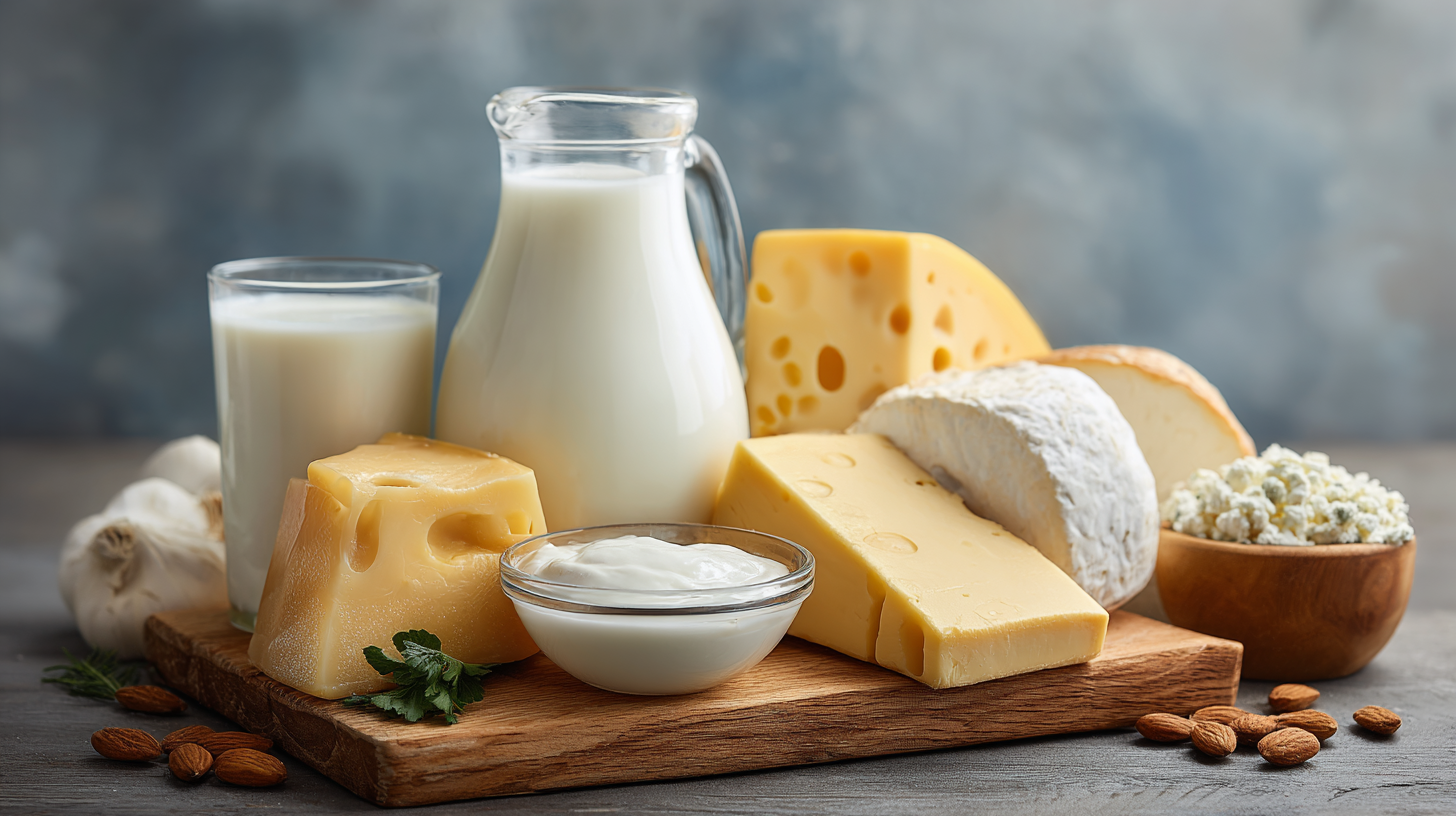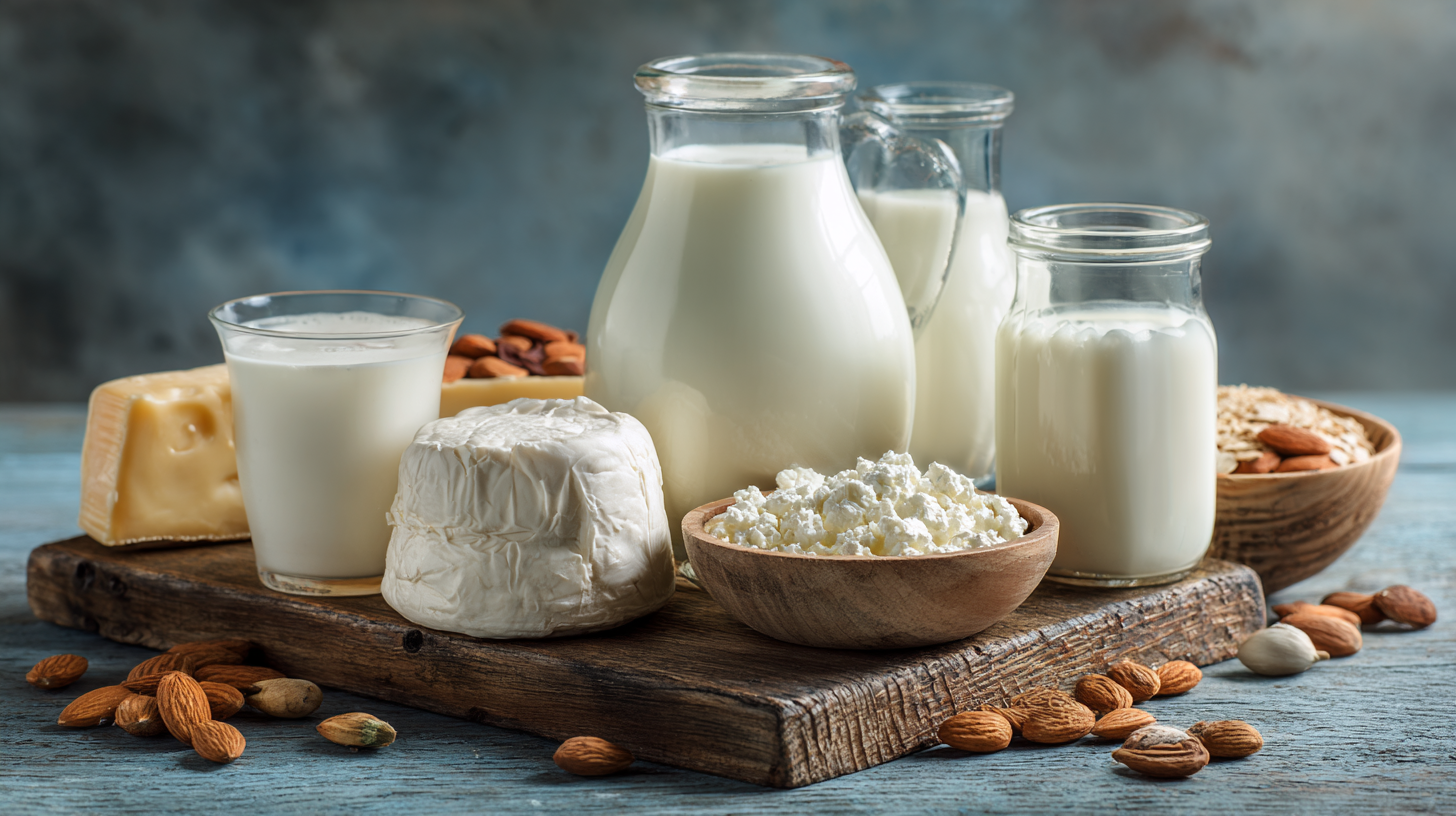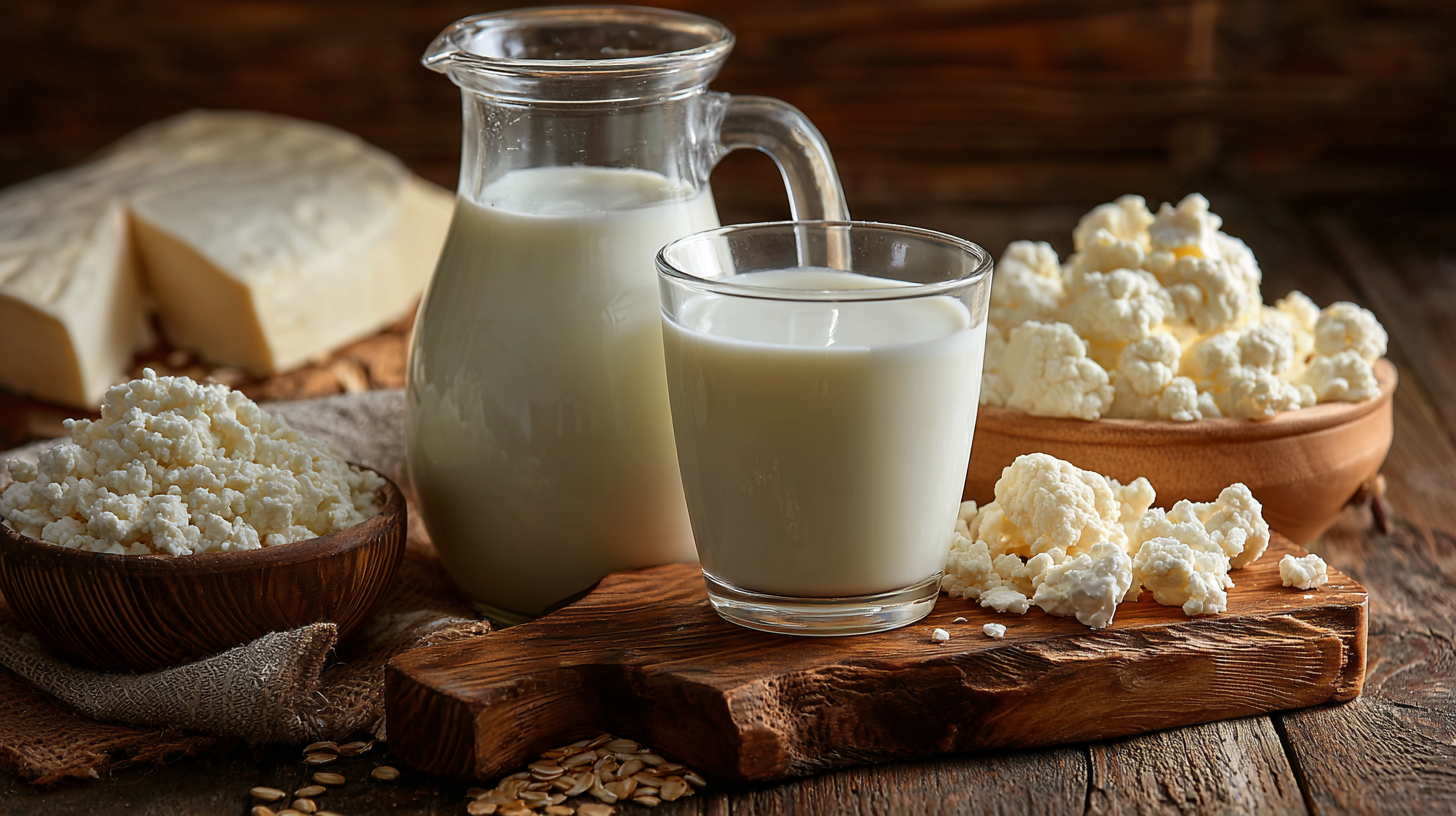
Unlocking the Secrets of Dairy: How Milk Transforms Nutrition and Wellness
Dairy products milk have long been recognized as a cornerstone of nutrition, providing essential nutrients that play a critical role in promoting health and wellness. According to the latest data from the United States Department of Agriculture (USDA), dairy products contribute approximately 20% of the daily calcium intake for adults and 40% for children, making them vital for developing strong bones. Furthermore, the International Dairy Federation reports that milk is a rich source of high-quality protein, delivering 8 grams of protein per cup, which is crucial for muscle repair and growth. As we delve into the secrets of dairy, we will explore how incorporating milk and its derivatives into our daily diets can not only enhance nutrition but also support overall well-being. With a growing body of research indicating the potential health benefits of dairy consumption, this guide aims to unlock practical tips for maximizing the nutritional impact of dairy products in our lives.

Understanding the Nutritional Components of Milk and Their Benefits
Milk, a cornerstone of nutrition, boasts a complex composition that significantly impacts health and wellness. The primary components of milk include water, lipids, lactose, and proteins, all of which contribute to its nutritional profile. Recent studies highlight the diverse protein types found in different milk types, such as donkey milk, which is rich in whey proteins and low in casein and fat. This profile allows donkey milk to offer unique health benefits, including antibacterial and anti-inflammatory properties.
Furthermore, the debate between whole milk and low-fat options continues, with experts emphasizing the high nutrient density of whole milk, notably its protein, calcium, and vitamin B12 content. These nutrients play a crucial role in maintaining bone health and potentially reducing the risk of chronic diseases. As individuals explore their dietary choices, understanding the nutritional benefits of various milk types, including plant-based alternatives, can empower better health decisions and contribute to overall wellness.
Exploring the Role of Dairy in a Balanced Diet for Optimal Health
 Dairy products play a crucial role in a balanced diet, offering a rich source of essential nutrients that contribute to overall health. They are packed with high-quality proteins, calcium, vitamins D and B12, and various other micronutrients that support the body’s functions.
Calcium, in particular, is vital for developing and maintaining strong bones and teeth, while vitamin D enhances calcium absorption, promoting better bone density and reducing the risk of osteoporosis. The combination of these nutrients makes dairy an invaluable component of daily nutrition, particularly for growing children and aging adults.
Dairy products play a crucial role in a balanced diet, offering a rich source of essential nutrients that contribute to overall health. They are packed with high-quality proteins, calcium, vitamins D and B12, and various other micronutrients that support the body’s functions.
Calcium, in particular, is vital for developing and maintaining strong bones and teeth, while vitamin D enhances calcium absorption, promoting better bone density and reducing the risk of osteoporosis. The combination of these nutrients makes dairy an invaluable component of daily nutrition, particularly for growing children and aging adults.
Moreover, dairy can assist in maintaining a healthy weight, thanks to its protein content that promotes satiety. Consuming dairy products as part of meals can help regulate appetite, making it easier to manage caloric intake. Additionally, the probiotics found in fermented dairy products, such as yogurt, contribute to gut health by supporting a balanced microbiome, which is increasingly recognized for its role in immune function and overall well-being. Embracing dairy in moderation can thus enhance dietary diversity and support optimal health across various life stages.
Incorporating Milk and Dairy Alternatives into Your Daily Meals
Incorporating milk and dairy alternatives into your daily meals can profoundly enhance your nutrition and overall wellness. Milk is a rich source of essential nutrients like calcium, vitamin D, and protein, which are vital for maintaining strong bones and muscles. For those who are lactose intolerant or prefer plant-based diets, dairy alternatives such as almond, soy, and oat milk can provide similar nutritional benefits. Many of these alternatives are fortified with vitamins and minerals, making them excellent substitutes that help meet dietary needs.

Including a variety of dairy and its alternatives in your meals can be both delicious and versatile. Start your day with a smoothie made from yogurt or a dairy-free option blended with fruits and greens. During lunch, consider adding a slice of cheese to your salad or a splash of plant-based milk to your coffee for added creaminess. For dinner, a creamy risotto can be made using either traditional milk or coconut milk, catering to various dietary preferences. By creatively integrating these ingredients into your meals, you can optimize your nutrition while enjoying the flavors and textures that dairy and its alternatives offer.
Unlocking the Healing Benefits of Probiotics Found in Fermented Dairy
Fermented dairy products, such as yogurt and kefir, are rich sources of probiotics, which have been shown to significantly impact gut health and overall wellness. According to a report by the International Dairy Federation, probiotics can contribute to the enhancement of metabolism and the reduction of gastrointestinal disorders by restoring the balance of beneficial bacteria in the digestive tract. This balance is essential for improving nutrient absorption and supporting the immune system, making fermented dairy an invaluable addition to a nutritious diet.
Incorporating fermented dairy into your daily routine can lead to various health benefits. Research published in the Journal of Nutritional Science indicates that regular consumption of probiotics can help alleviate symptoms of lactose intolerance and may reduce the risk of certain chronic diseases, including cardiovascular ailments and obesity.
**Tips:** Start your day with a serving of yogurt mixed with fresh fruits to enjoy a tasty and probiotic-rich breakfast. Consider adding kefir smoothies to your snack options for a nutrient-dense pick-me-up. Lastly, opt for products labeled with “live and active cultures” to ensure you are receiving the full benefits of probiotics in your fermented dairy choices.
Unlocking the Healing Benefits of Probiotics in Fermented Dairy
Guidelines for Choosing Healthy Dairy Products for Your Lifestyle
Choosing healthy dairy products is essential for enhancing your nutrition and overall wellness. When selecting dairy, prioritize low-fat or non-fat options to reduce saturated fat intake while still reaping the benefits of essential nutrients like calcium and vitamin D. Organic choices can also provide a cleaner option without the worry of antibiotics or hormones. Look for brands that use minimal processing and have short ingredient lists, ensuring you're consuming pure and wholesome dairy.
Additionally, consider alternative dairy sources if you are lactose intolerant or seeking plant-based options. Almond, soy, or oat milk can be nutritious substitutes, but be sure to select versions fortified with calcium and vitamin D. Always read the nutrition facts, as many plant-based milks vary widely in their nutrient content.
Tip: Incorporate fermented dairy like yogurt or kefir into your diet, as these can promote gut health and provide probiotics that boost immunity.

